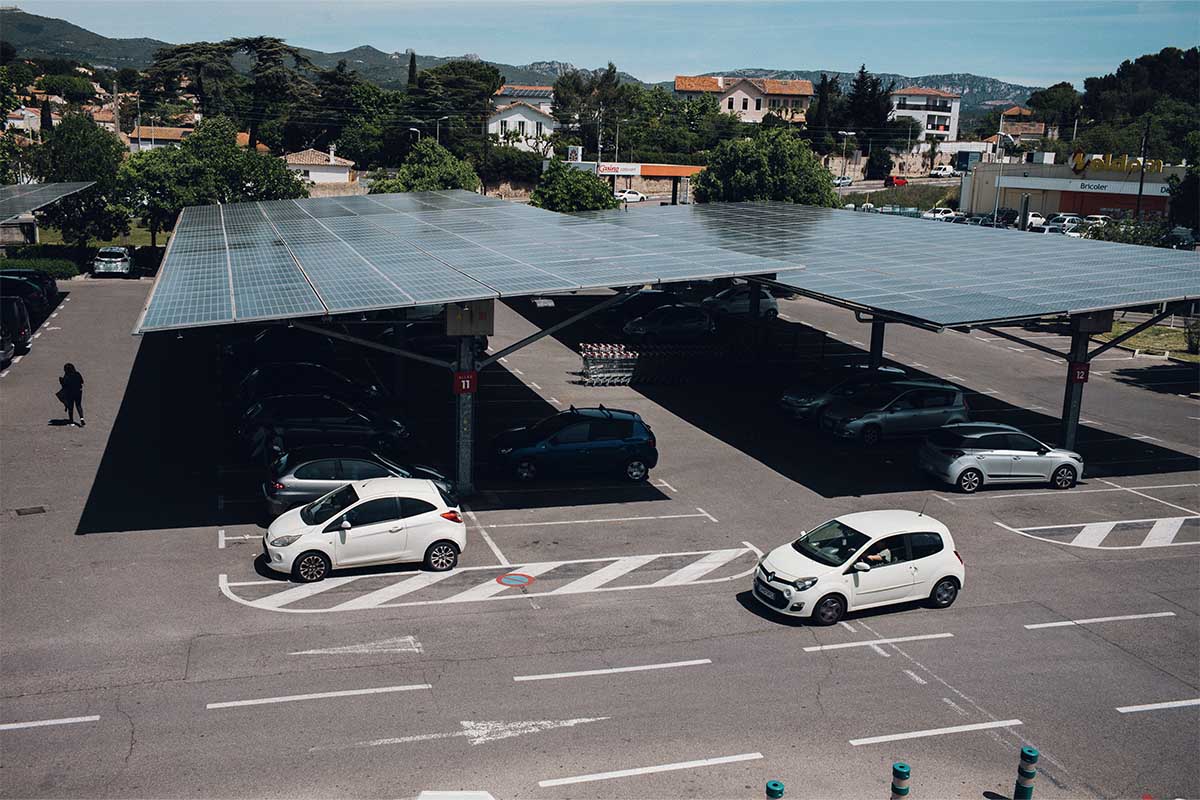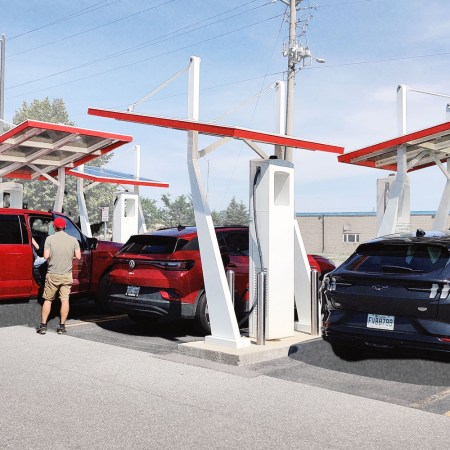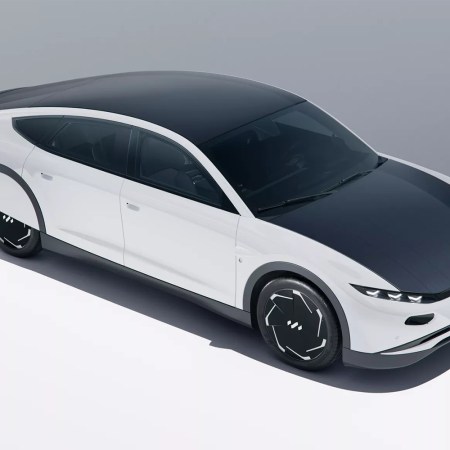All new and existing large parking lots in France will soon be required to be covered by solar panels. The French government, which approved the measure late last week, believes the new solar requirement could generate up to 11 gigawatts of power, which is the equivalent output of 10 French nuclear reactors and close to 8% of France’s entire electrical output.
It’s an ambitious plan, and one that’s going to come about quickly. Per The Guardian, the owners of parking lots with between 80 to 400 spaces have until 2028 to comply, but operators with more than 400 only have until 2026. At least half of the area of the larger sites must be covered by solar panels.
The French government is also planning to build large solar farms on empty land by motorways, railways and on farmland. These measures are all part of president Emmanuel Macron’s renewable energy pledge, which also includes wind farms and a communications rollout urging businesses and individuals to cut energy usage.
It’s a bold move, and the measure offers multiple benefits: It could ease an energy infrastructure that’s been affected by increased power consumption and complications involving energy supplies due to Russia’s invasion of Ukraine. In a way that might feel more tangible to drivers, these vast swathes of solar panels also offer free shade for parked cars.
While hard to see many downsides to this new law’s passage, similar measures here in the U.S. seem doomed to fail outside of individual states (most likely California). In the mostly positive comments section of the vehicle site Jalopnik, for example, a few users noted that legislation like this would make the area “ugly” (a debatable point) and create potential visibility issues for storefronts. While most Americans support expanding solar and wind energy, the renewable energy industry is a target for misinformation from the fossil fuel industry and its political supporters.
Thanks for reading InsideHook. Sign up for our daily newsletter and be in the know.


















